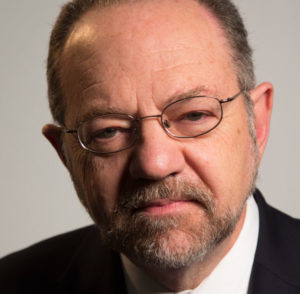The following post is the speech that Jonathan Moreno is giving upon acceptance of his award. This text is being released simultaneously with his speech in Anaheim.
Today I want to spend a few minutes talking about the importance of current geopolitical events for the future of what I will call modern bioethics, a field that became self-conscious in the late 1960s. But its roots can be found 25 years earlier, in a variety of institutions and mechanisms created following World War II, which political scientists sometimes call the international liberal order.
The deep relationship between modern bioethics and the liberal order, the global system of the rule of law and the organizations created to implement the rule of law since World War II, is not widely appreciated.
That liberal order is now under threat in various ways, including the ascent of “strongmen” as heads of government, U.S. withdrawals from several international agreements, China’s efforts to extend its influence, Russia’s actions in the Crimea and its online influence operations, and the British decision to withdraw from the European Union.
 My interest in this topic predates those events. At a meeting of Mexico’s bioethics commission in Mexico City in 2014, I called attention to renewed ethnic nationalist movements as threatening the underlying universalist assumptions of bioethics. In 2015 those tendencies achieved broad popular appeal in reactions to the refugee crisis, hardening anti-immigrant attitudes. The rest of the story of the last several years is well known to all of us.
My interest in this topic predates those events. At a meeting of Mexico’s bioethics commission in Mexico City in 2014, I called attention to renewed ethnic nationalist movements as threatening the underlying universalist assumptions of bioethics. In 2015 those tendencies achieved broad popular appeal in reactions to the refugee crisis, hardening anti-immigrant attitudes. The rest of the story of the last several years is well known to all of us.
According to the liberal order, international relations are to be organized according to principles of open markets, liberal democracy, and multilateral organizations. The Atlantic Charter, signed by President Franklin Roosevelt and Prime Minister Winston Churchill in 1941, is often taken be the first statement of the order, followed by the founding of the UN in 1945.
The liberal order has been said to have three aspects: economic (e.g., the World Bank, the International Monetary Fund, and the World Trade Organization, security (e.g., NATO), and human rights.
Modern bioethics can be viewed as part of the human rights aspect of the liberal order, though bioethical values may also inform and guide economic development (e.g., global pharmaceutical research endeavors and public health programs) and security (through the laws of armed conflict and the treatment of prisoners of war).
Concerning the human rights aspect of the liberal order, the United Nations Charter is the key founding document. It “reaffirmed faith in fundamental human rights and dignity and worth of the human person” and committed member states to promote “universal respect for, and observance of, human rights and fundamental freedoms for all without distinction as to race, sex, language, or religion.” Article I of The Universal Declaration of Human Rights (UDHR, 1948) stated that “[a]ll human beings are born free and equal in dignity and rights. They are endowed with reason and conscience and should act towards one another in a spirit of brotherhood.”
These are guidance documents and do not obligate member states. I make no claims about the effectiveness of any of these statements, many of which are aspirational. Still, they establish norms for the basis of human rights. The Universal Declaration on Bioethics and Human Rights (UDBHR, 2006) states, “human rights constitute the tangible elements for achieving … freedom, and therefore, peace as progress, as transformation and as deepening in dignity, equality, and freedom of all human beings”. The UDBHR established a wide range of principles including personal autonomy, consent, privacy, equality, and benefit sharing. Other guidance documents from the United Nations Economic, Social and Cultural Organization (UNESCO) include those on the human genome and human rights (1997) and human genetic data (2003).
Two UNESCO entities, the International Bioethics Committee and the World Commission on the Ethics of Science and Technology have published reports on such topics as non-discrimination and non-stigmatization, bioethics and refugees, and adaptation to climate change. The Council for International Organizations of Medical Societies, established by UNESCO and the World Health Organization (WHO), publishes specific ethics guidance documents on topics like drug promotion.
Again, the practical effectiveness of these institutions varies. Many are hardly known in the United States, but they are prominent as at least sources of policy guidance in the rest of the world. They all have a substantial bioethics mission that has contributed to the development of an international framework of assumptions about public and private conduct. As Robert Baker puts it, the liberal order that flourished after WWII shaped bioethics “as an ethics of covenants and conventions grounded in human rights”.
 The formal organization of the U.N. and its agencies and entities within the domain of bioethics does not fully capture the cultural landscape of postwar bioethics. The Nuremberg Code (1947) laid down influential markers for the conduct of experiments involving human subjects. The first proposition of the Code, that “[t]he voluntary consent of the human subject is absolutely essential,” as well as provisions concerning legal capacity and professional responsibility, have shaped virtually every national and international document on the subject. This is true despite continuing disagreement about the legal status or precise reference of the Code.
The formal organization of the U.N. and its agencies and entities within the domain of bioethics does not fully capture the cultural landscape of postwar bioethics. The Nuremberg Code (1947) laid down influential markers for the conduct of experiments involving human subjects. The first proposition of the Code, that “[t]he voluntary consent of the human subject is absolutely essential,” as well as provisions concerning legal capacity and professional responsibility, have shaped virtually every national and international document on the subject. This is true despite continuing disagreement about the legal status or precise reference of the Code.
The World Medical Association Declaration of Helsinki (first version 1964) was in part an effort by the international medical community to reclaim control over the ethics of human experiments in a manner more acceptable to actual practices. In the United States, the National Commission’s statement of principles, known as the Belmont Report (1979) expresses the same underlying ethos as the Nuremberg Code and the Declaration of Helsinki. Besides the principles (respect for persons, beneficence and justice) the Belmont Report insists on the moral relevance of the distinction between research and practice. In 1982, the Council for International Organizations of Medical Sciences (CIOMS) in association with the World Health Organization (WHO) issued “guidelines […] to provide internationally vetted ethical principles and detailed commentary on how universal ethical principles should be applied, with particular attention to conducting research in low-resource settings”. In 1997 the European Council’s Oviedo Convention stipulated that “The interests and welfare of the human being shall prevail over the sole interest of society or science,” proceeding then to a number of bioethics standards.
What happens to the liberal order in the next few years matters to bioethics. We don’t know if the weakening of international norms and institutions will undermine bioethics as we have known it, but that possibility may be tested. Like so much else of modern life, our field is part of the tissue of the international system created after the war, at the price of tens of millions of lives. It was perhaps inevitable that a system of norms and values would emerge in reaction to that catastrophe, but it is not inevitable that those norms and values will survive.
I don’t mean to exaggerate the importance of bioethics to the future of humanity. To paraphrase Rick in Casablanca, I’m no good at being noble, but it doesn’t take much to see that the problems of one little field don’t amount to a hill of beans in this crazy world.
Nonetheless, in its very modest way, bioethics can serve as a reminder of what’s at stake.
*Some of the ideas expressed in this talk are also expressed in a paper in preparation with Sergio LItewka. I am grateful to Nicholas Diamond for his comments on a previous draft.